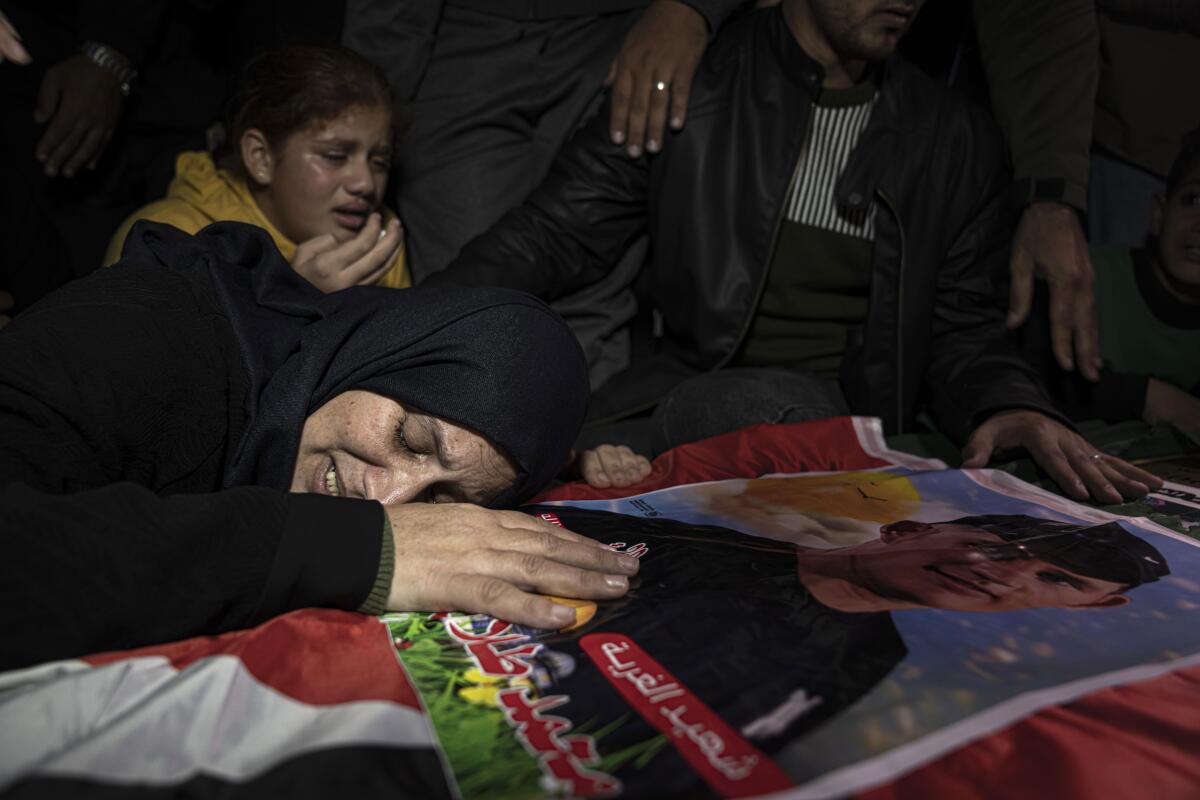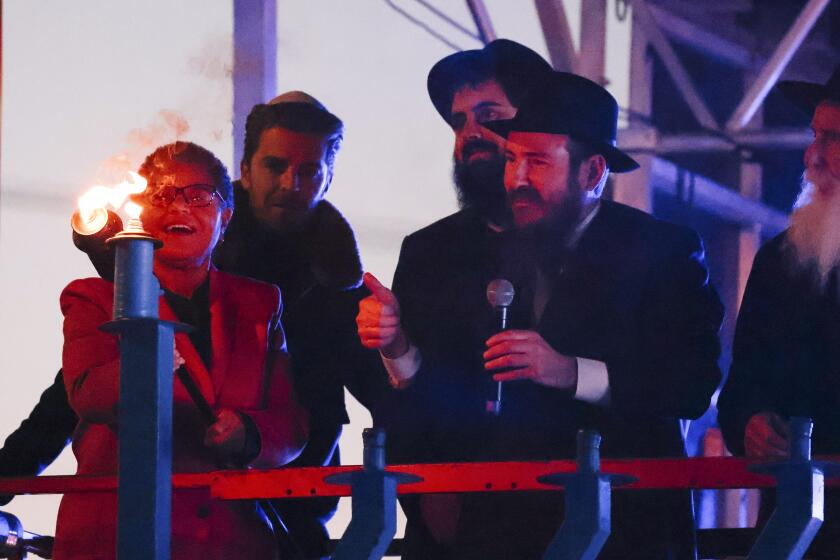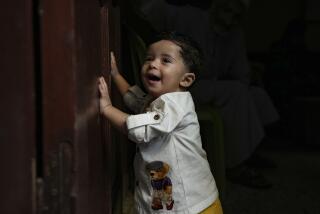Mass funeral in Gaza draws tears, rare criticism of Hamas

- Share via
KHAN YOUNIS, Gaza Strip — Thousands of people on Sunday joined the funerals of eight young Palestinian men who drowned off the coast of Tunisia nearly two months ago as they tried to sail to new lives in Europe.
The drownings have reverberated across Gaza, drawing attention to the dire conditions in the territory after a 15-year Israeli-Egyptian blockade but also prompting some rare public criticism of the ruling Hamas militant group.
“The government that governs us here is the reason. It’s to blame. It’s to blame,” said Naheel Shaath, whose 21-year-old son Adam was among the dead. “I blame all officials here who don’t care for the youths or provide job opportunities for them.”
Israel and Egypt imposed the blockade after Hamas seized control of Gaza from the internationally recognized Palestinian Authority in 2007.
Israel says the closure, which restricts the movement of people and goods in and out of the territory, is needed to prevent Hamas from arming itself. Israel and its Western allies have branded Hamas, an Islamic group sworn to Israel’s destruction, a terrorist group. Critics say the blockade amounts to collective punishment.
Los Angeles Mayor Karen Bass lights a menorah at citywide Hanukkah celebration.
The blockade has stifled the economy of Gaza, where unemployment hovers near 50%, and residents are usually quick to blame Israel for the difficult conditions. But increasingly, families have begun to complain about Hamas’ leadership, citing the high taxes, its heavy-handed rule and a growing stream of leaders, including its supreme leader Ismail Haniyeh, who have moved abroad to more comfortable places with their families.
“Our children are drowning in the sea and their children are enjoying luxury. Isn’t this unfair?” Naheel Shaath said.
The eight men who were buried Sunday, all from the southern town of Khan Younis, were among about two dozen Palestinians who drowned over the past three months en route to Europe.
In the past few years, thousands of migrants from poverty-stricken or war-ravaged countries in Africa, Middle East and Afghanistan have perished in the dangerous crossing of the Mediterranean Sea.
Shaath said her son had studied hairdressing but could not find a decent job. Even when he was hired at a local barber shop, he earned just 10 shekels, or about $3, a day.
“If there was work here for those sad youths, would they have left and migrated?” she said.
He followed a path taken by thousands before him, fleeing to Turkey, one of the few countries that accepts Palestinians from Gaza, on a perilous journey meant to reach Europe.
From Turkey, he went to Egypt and then to Libya. The family said it lost contact with him Oct. 4, holding out hopes that he had somehow made it to Belgium. But the bad news came Oct. 24: He was on a boat that sank off Tunisia.
According to the Geneva-based nonprofit Euro-Med Human Rights Monitor, around 360 people from Gaza have either died or gone missing in the Mediterranean on smuggling ships since 2014.
The bodies of the eight Palestinians on Adam’s boat were returned to Gaza on Sunday through the Rafah border crossing with Egypt. Eight ambulances carried the bodies to a hospital, where thousands of wailing people joined a mass funeral.
The procession broke down into smaller funerals as each family took their son home for a final goodbye before burial.
Another family, the Shaers, buried their son, 21-year-old Mohammed. But his younger brother Maher, 20, is still missing. They were on the same doomed boat.
Their mother, Amina, blamed Hamas for the family’s misery.
“What do we see in Gaza? We only see oppression,” she said. “They are suffocating the youth and the youth flee because of their suffocation.”
More to Read
Sign up for Essential California
The most important California stories and recommendations in your inbox every morning.
You may occasionally receive promotional content from the Los Angeles Times.











